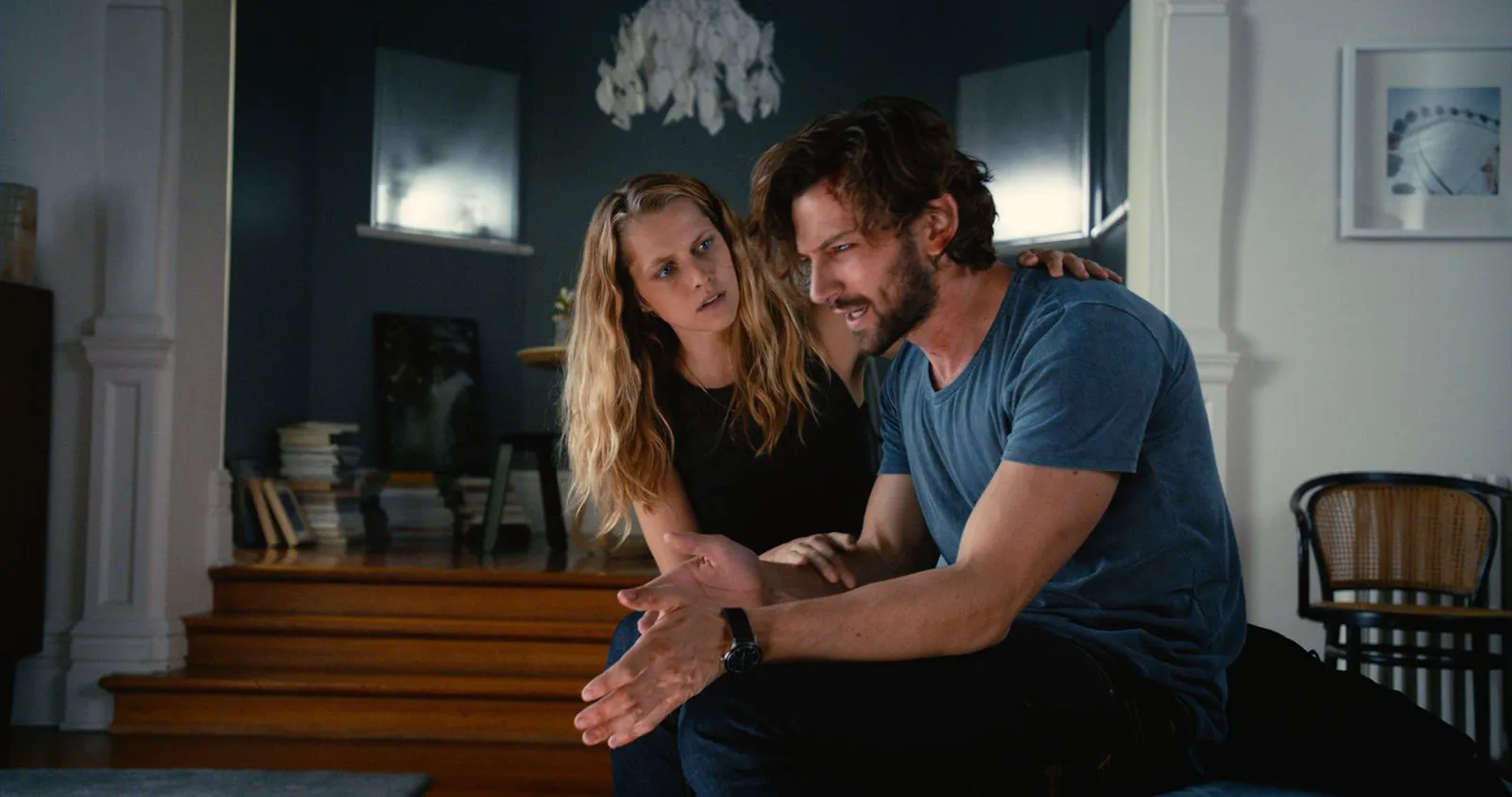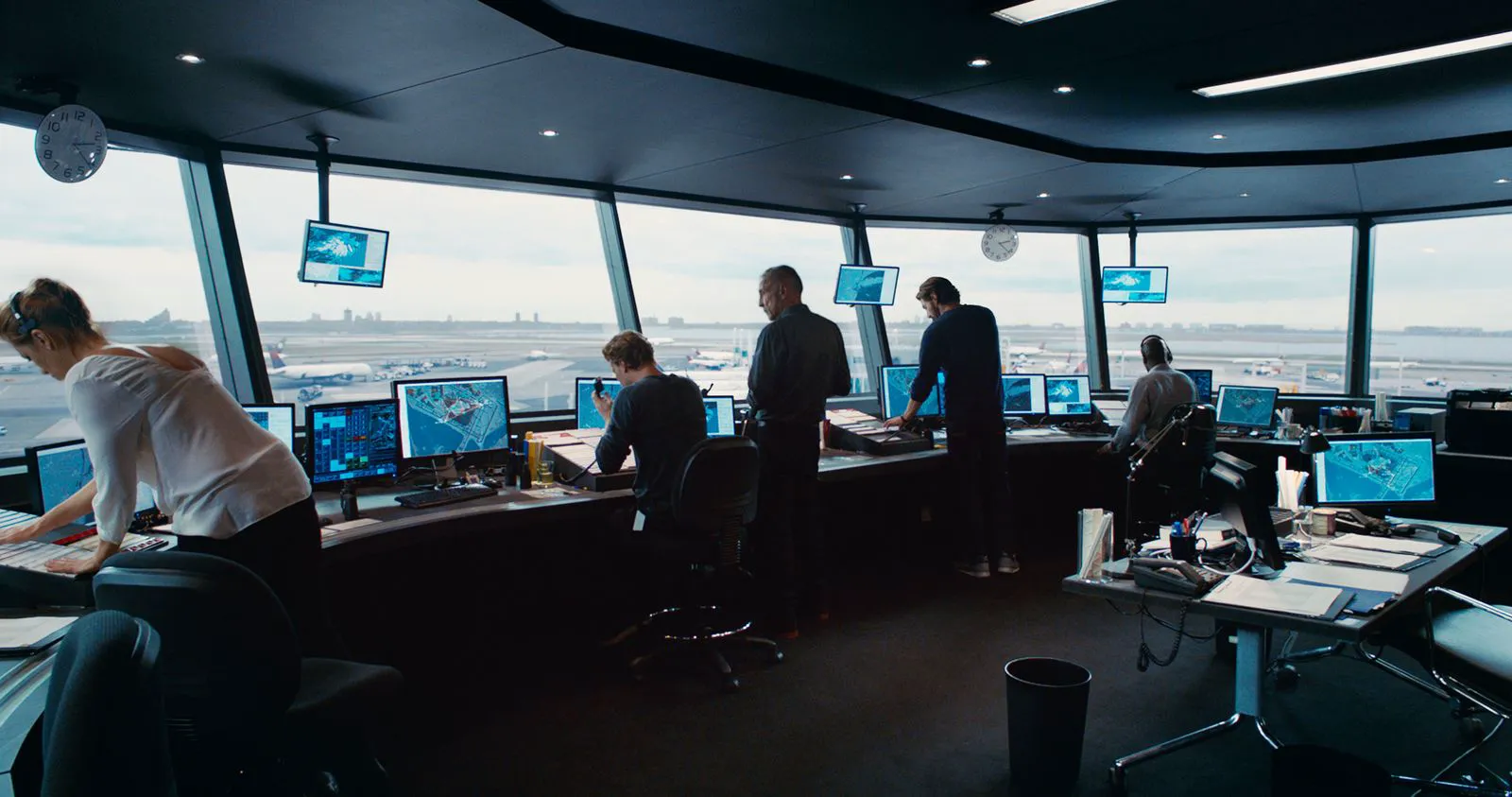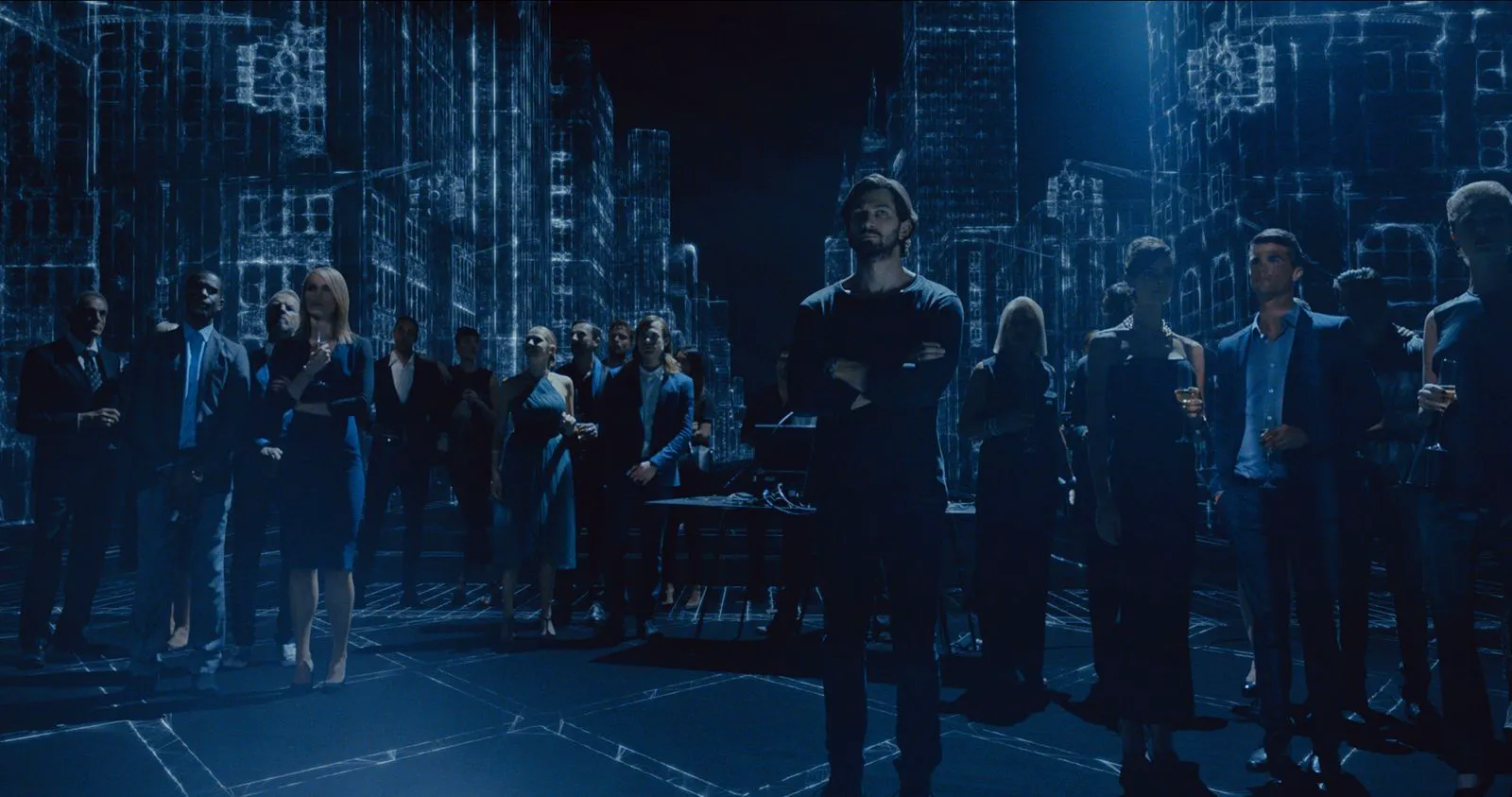A Clumsy Thriller About Fate and Reincarnation
This film, billed as a thriller, only manages to live up to the genre in its first half-hour. What follows is an unpretentious drama with cheap and absurd plot twists.
Dylan Branson is a young and talented air traffic controller at a bustling New York airport. His unique ability to instantly assess situations and find order within the chaos of the East Coast’s largest air hub allows him to skillfully resolve any transportation issues. However, on the eve of his 30th birthday, Dylan narrowly avoids a fatal mistake – two planes come within feet of colliding. From that moment on, his life begins to unravel. What seemed like a series of random events starts to form a sinister pattern, with Grand Central Terminal as the epicenter at exactly 2:22 PM. Dylan is destined to relive the life of a man he never knew, who was shot dead thirty years ago. All of this revolves around his love for Sarah, the woman whose arrival triggered this mystical twist.

The filmmakers initially wanted Armie Hammer or, failing that, Benjamin Walker for the lead role. However, due to scheduling conflicts, they had to “settle” for Michiel Huisman.
The Problem with Happy Endings
The Russian classic reminds us that the happy lives of lovers are rarely interesting. Even Russian fairy tales, with their centuries of history, confidently skip over comfortable domesticity, opting instead for “They lived happily ever after and died on the same day.” Of course, every couple has a story, or even several, that they consider extraordinary, setting their lives apart from the mundane routines of others. But often, this is self-deception. That’s where imagination, fiction, and the ability to give simple things a mystical touch come in. In successful cases, the result is brilliant, but more often, these stories falter due to a lack of logic and an awkward overuse of mysterious omens.

Teresa Palmer previously starred in a film with a time-related title, playing the lead role in the 2006 indie drama “2:37.”
A Love Story Dressed as a Thriller
“2:22,” directed by Paul Currie, is a simple love story artificially inflated to the scale of an apocalyptic revelation. Dylan and Sarah, the film’s protagonists, are ordinary, moderately successful New Yorkers who could have easily met in Central Park, at a dinner with mutual friends, or in one of the city’s millions of cafes. They could have met, fallen in love, and created a typical family with a baby, a dog, and memories of an ordinary chance encounter. But the screenwriters wanted to give this commonplace story a magical aura, a sense of fateful significance, fatalism, and galactic scope. The characters find themselves drawn into a strange game involving a crime from the past, the birth of a supernova, and the fantasies of a mad artist.

Promising Beginnings, Disappointing Endings
For the first half-hour, the film does manage to capture the attention of those who enjoy mysticism and signs of fate. Dylan discovers a frightening pattern in the events surrounding him. He sees similar people at the same time in the same places, seemingly random sounds outside his window form a system, and the Grand Central Terminal, where something strange happens every day at exactly 2:22 PM, becomes an irresistible magnet. And then there’s the averted disaster, the circumstances of which seem far from accidental… And the meeting with Sarah, a passenger on the doomed flight… Dylan begins to slowly lose his mind, realizing that fate is leading him towards something terrible.

At this point, “2:22” pleasantly resembles “Final Destination” with its chilling breath of death, “Knowing” with its columns of numerical dependencies, and “12 Monkeys” with its obsession with death in the terminal hall. But just as you start to enjoy it, the film takes a turn for the worse. Once the narrative crosses the halfway mark, the writers begin to offer explanations for what’s happening, and the film crumbles. It’s absurd to demand plausibility from a mystical plot, but there should be some semblance of logic. “2:22” relies on such strange assumptions, stretches, and coincidences that the explanations for Dylan’s unusual state can only be described as far-fetched.

From Thriller to Melodrama
It becomes clear that the director and screenwriters decided at some point that they were now making a drama about lovers separated by cruel fate. The authors dredge up old love letters, identical necklaces, dramatic breakups, and Sarah’s sudden desire to leave New York. The film takes on the characteristics of a low-grade romance novel with cartoonish characters and lines like “he entered her like a knife through butter.” Watching this steep decline is painful. The earlier interest in the mysteries of the universe is quickly forgotten, and the saccharine sentimentality floods the screen so thickly that the final scene, with Sarah and Dylan’s tearful reunion, creates a lump in your throat, but not from tears, as you might expect.
And don’t expect a reasonable resolution. The final scene shows that ordinary family, who, having nothing interesting to say about their quiet domestic bliss, invents a tale of reincarnation, cosmic explosions, and a shootout under the clock at an old train station. Leo Tolstoy was right, a thousand times right: all happy families are alike. This new Australian film, pretending to be a thriller, can only respond with an awkward and absurd fantasy, crudely stitched together.